#Mona Hanna-Attisha
Text
Beginning in January 2024, every pregnant person in Flint is poised to receive a one-time payment of $1,500 followed by $500 payments per month for the first year of their child’s life. Made through a new program called Rx Kids, these funds could mean the difference between being able to make rent or pay for utilities, Hurt explained.
“First-time moms need cribs – you name it, we need it,” said Hurt, who has five children, including a 6-month-old baby. “There are so many things this could help with; it could help with transportation, with groceries. I’m really excited; I think it’s really going to help.”
In a city where the childhood poverty rate is approximately 50% – and where 35.5% of the entire metropolis lives in poverty – the United States’ first-ever citywide prenatal and infant cash allowance program aims to improve residents’ health and empower children and families whose experiences with the initiative could in turn dramatically transform public policy in the country, leaders of Rx Kids said during a Monday press conference held outside the Michigan State University College of Human Medicine in Flint.
Extensive research has found that poverty and low-income status are associated with a long list of health issues, including shorter life expectancy and higher rates of infant mortality, asthma, depression and substance abuse.
At Monday’s event, Lt. Gov. Garlin Gilchrist, state Sen. John Cherry (D-Flint), Dr. Mona Hanna-Attisha – a Flint pediatrician whose research helped to expose the water crisis that, beginning in 2014, left the city to drink lead-contaminated water – and H. Luke Shaefer, the director of University of Michigan’s Poverty Solutions initiative who is partnering with Hanna-Attisha to launch Rx Kids, announced that the state’s Fiscal Year 2024 budget includes $16.5 million for the program.
Gov. Gretchen Whitmer on Monday signed the $57.4 billion general government budget, which includes the Rx Kids money that’s coming from federal Temporary Assistance for Needy Families (TANF) block grant funds.
12 notes
·
View notes
Note
hi What was the 2rd book in your book poll titled?
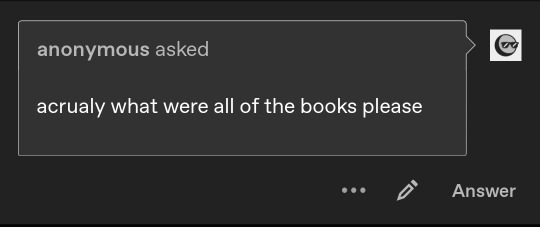
Hi! Sorry I forgot to answer this when I was home but I'll answer now. It got a little out of hand, oops. Here's a link for the poll being referenced right now.
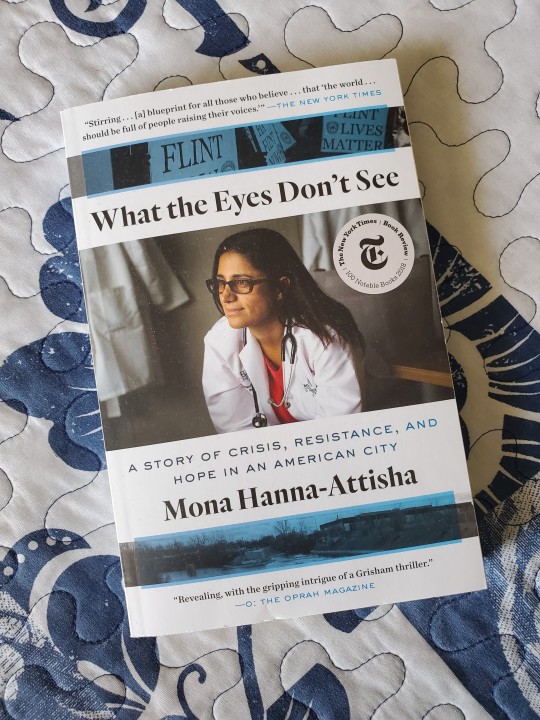
The first book was What the Eyes Don't See by Mona Hanna-Attisha. It's the story about how Dr. Mona, alongside other researchers and community members, discovered that people living in Flint, MI were being exposed to high levels of lead in tap water. The books says it's "paced like a scientific thriller" and tbh I might read it next because I'm very interested. I work in lead poisoning prevention (with a side of environmental justice) professionally, so it's of specific interest to me.
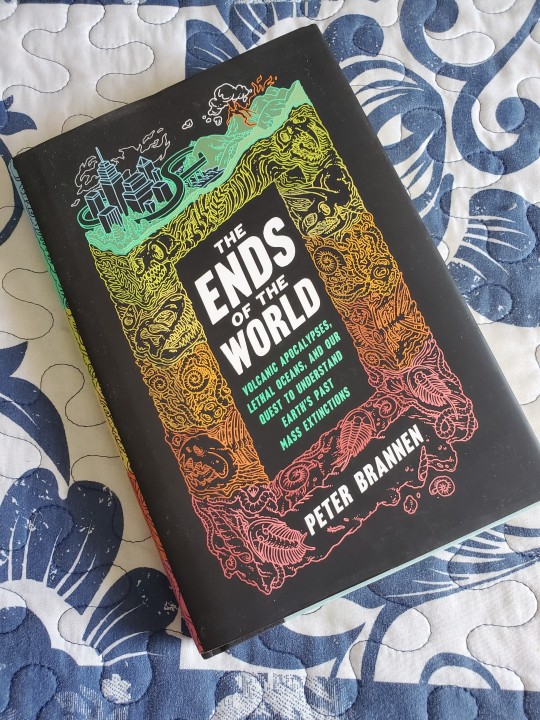
The second book, the one you originally asked about, is The Ends of the World by Peter Brannen. It's a "vivid tour of Earth's big five mass extinctions, the past world's lost with each, and what they all can tell us about our not-too-distanr future." It is also "part road trip, part history, and part cautionary tale."
ALSO. HELP. I just realized that this is the same author who wrote one of my favorite articles that I read in my upper level historical geography class about climate history. I knew his name looked familiar!! In that case, I'm sure this book will be amazing because I cannot stress enough that I think about that Atlantic article literally all the time. It's one of the first things my mind brings up on the subject of climate change.
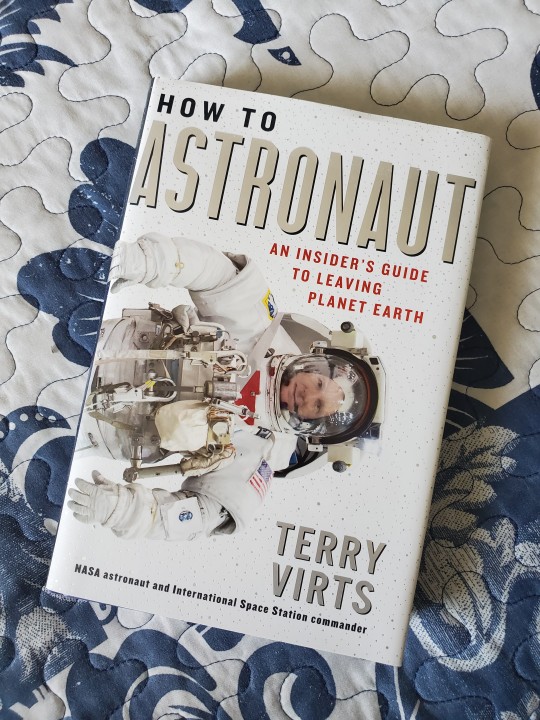
The 3rd book on the poll was How To Astronaut: An Insider's Guide to Leaving Planet Earth by Terry Virts. Terry is an astronaut who spent 200 days as the commander of the International Space Station. This book has 51 short chapters, separated in the table of contents in neat little sections by subject, about space related things. I need to admit right now I bought the book when I was writing on IBW because I was like ooooh I'm doing spaceship stuff!!!
I don't doubt there's science in this book of course, but the reason I called it more of a silly-fun read is because I anticipate it can mostly be read via whichever chapters interest you most and is definitely written for a general audience who're interested in such questions as "how to astronauts pee" LOL. I just don't think it will be as technical as some of the other books on my shelf, which is frankly very nice (for someone trying to coax herself into reading "real" books more often.)
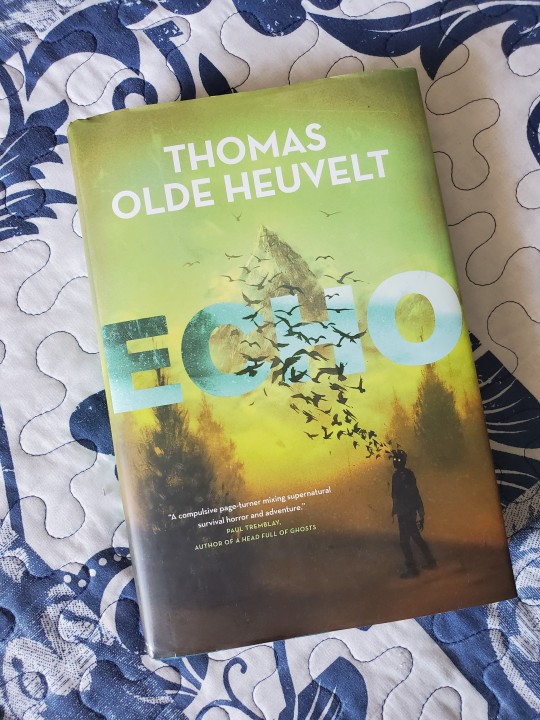
The fourth book is Echo by Thomas Olde Heuvelt. I'm still going to give this book a try because it sounds SO interesting. I just started reading it immediately after I bought it and was pretty annoyed in the first 35 ish pages. It's like an eldritch supernatural survival horror novel. Talks about "a thrilling descent into madness and obsession as one man confronts nature--and something even more ancient and evil answers back." Some of the back book jacket quotes say things like "Can a place be evil?" and "the dread of something monstrous wearing the face of someone you love."
Basically, if you like spooky wilderness things (are you a fan of the SAR nosleep stories on reddit, perhaps? [location] gothic posts on tumblr?), and the "came back wrong" trope, it seems like the perfect book. I just found the first POV character to be annoyingly shallow 😭 but like he probably grows as a person over the course of the book and/or dies at the end so I should just keep going
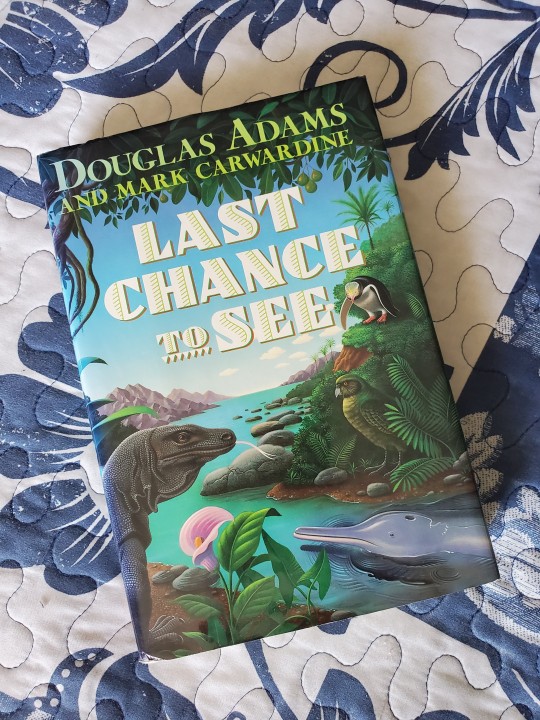
The winner of the poll was Last Chance to See by Douglas Adams and Mark Carwardine, since I had already read half of it starting last year and just inexplicably stopped for no reason, as one does when one gets distracted. I started rereading it since last week's poll and probably only lack 40 pages now. The book is about a series of trips they went on (mostly between 1988-1989) to look for endangered species. All the trips were recorded for BBC Radio at the time, and Douglas Adams tagged along to write this book.
It is, like every work by Douglas Adams, a very fun and witty read. The saddest part, which I mentioned in a previous post, is that the book was published in 1990 and some of the species he writes about are now extinct (or functionally so) in 2023. So that's a bit of a bummer to an otherwise fantastic read.

The final book from the poll is The Downstairs Girl by Stacey Lee. It's a historical YA social drama that I think I bought a year or two ago? It’s about 17 y/o Jo Kaun who works as a lady's maid to a wealthy family in the Old South. She starts a newspaper advice column under a pseudonym, becomes wildly popular, and starts to get backlash as she uses her column to challenge social norms about race and gender.
Books I Read Already:
Now, for a few more book notes because I'm having fun LOL. The book I just finished was Fire Season by Philip Connors:
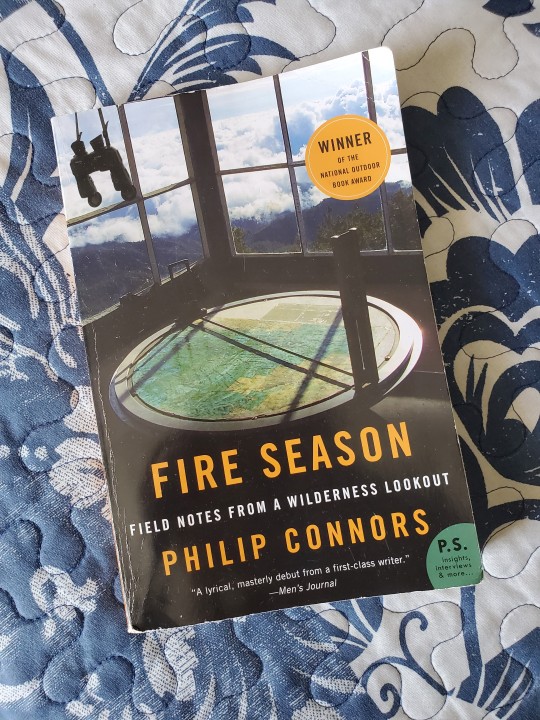
I ran across this book in Half Price Books around January of this year, and immediately recognized Philip Connor's name on the spine because of previous research for Firewatch AU. I had been specifically looking for literature or poetry about fire lookouts, which led me to his website where I read the first chapter of this (it also led me to Gary Snyder.) So when I went to the environmental science section of the store, I saw this and out loud said, "Philip Connors! I know who you are!" and bought the book. So yes, I've spent actual money on researching this fanfic xD
It's a really cool book. It drips with beautiful description and is packed with the history of the land, the US Forest Service, and fire lookouts as a whole. I realized after I finished that I've probably been subconsciously modeling my writing style for descriptions in my fanfic based on Connors' writing! Also, the references section of this book is going to actively Make Me Worse, because Connors introduced me to much more writers and literature about wildland fire. I'm interested in Young Men and Fire by Norman Maclean, Mountains of Memory: A Fire Lookout's Life in the River of No Return Wilderness by Don Scheese, Black Sun by Edward Abbey, multiple works by Jack Kerouac, and Poets on the Peaks by John Suiter as a result now.

I really recommend Strange Beasts of China by Yan Ge, translated by Jeremy Tiang. I read this last year and enjoyed it a lot. It was originally published in Chinese in 2006, and published in English in 2020. It's a magical realism fantasy book about an amateur cryptozoologist (and romance writer!) who is tracking down the "beasts" in her world to write about. Each chapter is about a different one, and each chapter draws her deeper into a mystery "that threatens her very sense of self." Whatever your mental picture if a beast is, this book is probably very different. I don't really know how to describe them either, you just need to read it.
I read this book completely in two sittings and found it very interesting. I also have to confess I bought it specifically because it hinged on the same philosophical concepts that I was obsessed with when I wrote my fanfic How to Be a Human Being--what does it mean to be human? what does it mean to not be a human? does it matter? how does personal identity intersect? The book describes itself as "part detective story, part psychological enquiry" and "explores existential questions of identity, humanity, love, and morality."
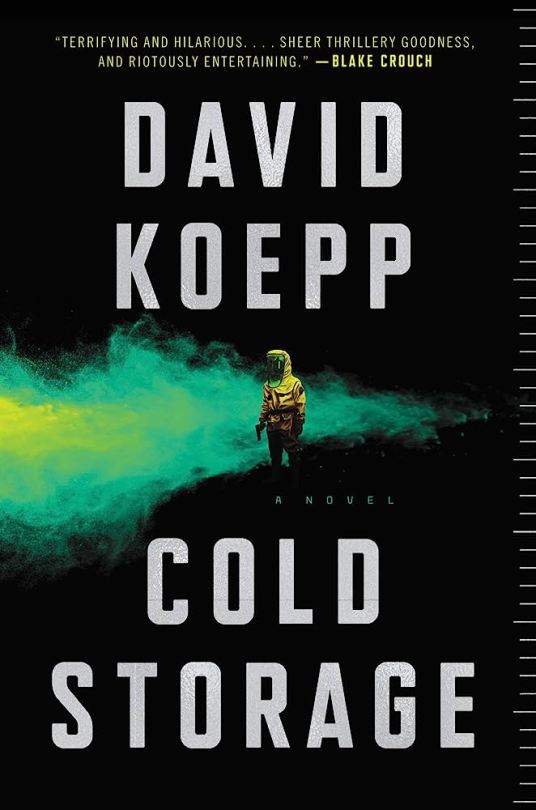
Cold Storage by David Koepp is the first audiobook I listened to when I got the Libby app. I HIGHLY recommend it, I loved this book. It's a sci-fi thriller about a highly mutative and highly deadly fungus that takes over people's brains and controls them. Think the zombie-ant fungus. A sample was thrown in, ahem, cold storage, by the US government in the 80s after it was discovered, but was forgotten about because only two people on the planet ever actually lived to see how dangerous it was. The underground vault was eventually sold in later years to a storage company and it has sat undisturbed for decades until now--when it's escaping. Most of the book takes place over the course of a day as two unwitting storage company night shift workers go to investigate an alarm going off deep underground, and the retired bioterror operative tries to respond to the threat as fast as he can. Be aware of body horror and gore in this book!
It's being made into a movie, and I'm pretty excited! I imagine the production has been completely halted by the strike, however. Well, it's in post-production so maybe there is a chance. I hope it gets delayed if it needs to be though for solidarity with the strikers. They cast Joe Keery as one of the main characters and I think it's flawless casting. However, I'm a bit annoyed they cast Liam Neeson for another main character though because like....that guy was NOT white in the book??? Also they said they started filming in Rome, Italy, which is sooooo???? No part of the book takes place in any location similar to that. So I'm stuck between thinking it will be fantastic because of the casting of Keery and highly worried by these other details.
I also read Aurora by David Koepp via audiobook, but I'm not gonna lie I really did not enjoy that one. I feel like Koepp made some very bizarre pacing decisions, mostly ignored all of the most interesting elements of his plot, and failed to make me care about any character which therefore made the ending fall flat. Most of the negative Goodreads reviews share my same thoughts...soooo sorry Koepp! Loved ur other work though <3 and your work with the Jurassic Park movie script <3
Other books on my list/currently reading:
-I'm currently listening to the audiobook for Dark Matter by Blake Crouch. I really love it so far. If you're into alternate universes, this is for you. It's also a sci-fi thriller. Shortest blurb I could use to explain it is: what if you were just minding your own business and your alternative universe self kidnapped you and forced you to switch places with him? Be aware of strong themes of unreality in this book.
-Dune by Frank Herbert is also on my list because I wanted to be stubborn and read the book before ever seeing the movie. Folks this one might take a hot second to force myself to read...but I own it and it's on my shelf.
-Losing Earth: The Decade We Could Have Stopped Climate Change by Nathaniel Rich is also on my shelf, unread. This book was originally a long piece published in the New York Times. Frankly, the reason I did not include it in the original poll is that it seems like a bummer of a read 😭 like I am VERY interested in environmental science (duh) and this book will be very informative but frankly I probably need to have a specific mindset to start this on
There's a few more books on my shelf, such as a fantasy travel guide, an astrophysics book I received as part of a high school science team, a YA novel set in space, Silent Spring by Rachel Carson, or a Bill Bryson book my mom gave me about Australia, but that's probably a good enough place to end this for now.
5 notes
·
View notes
Text
I reviewed the book What the Eyes Don't See: A Story of Crisis, Resistance, and Hope in an American City by Mona Hanna-Attisha.
★★★★☆
2 notes
·
View notes
Text
0 notes
Text
0 notes
Text
True grit: Pediatrician proves Michigan community’s water was poisoning children
Flynt lead case and Mona Hanna-Attisha, M.D., M.P.H, FAAP was first to diacover.

View On WordPress
0 notes
Text
Flint Water Crisis Whistleblower Shares Story Of Her Immigration From Iraq
New Post has been published on https://truckfump.life/2022/10/05/flint-water-crisis-whistleblower-shares-story-of-her-immigration-from-iraq_n_633d4167e4b0b7f89f4660c6/
Flint Water Crisis Whistleblower Shares Story Of Her Immigration From Iraq
Dr. Mona Hanna-Attisha, one of the key whistleblowers in exposing the Flint water crisis, shares her family’s story of immigrating to the U.S. from Iraq to escape oppression. She and Michigan Congressman Dan Kildee discuss Trump’s policies on immigration and refugees.
0 notes
Text
Download What the Eyes Don't See: A Story of Crisis, Resistance, and Hope in an American City PDF -- Mona Hanna-Attisha
Download Or Read PDF What the Eyes Don't See: A Story of Crisis, Resistance, and Hope in an American City - Mona Hanna-Attisha Free Full Pages Online With Audiobook.

[*] Download PDF Here => What the Eyes Don't See: A Story of Crisis, Resistance, and Hope in an American City
[*] Read PDF Here => What the Eyes Don't See: A Story of Crisis, Resistance, and Hope in an American City
0 notes
Text
PDF What the Eyes Don't See: A Story of Crisis, Resistance, and Hope in an American City EBOOK BY Mona Hanna-Attisha
Download Or Read PDF What the Eyes Don't See: A Story of Crisis, Resistance, and Hope in an American City - Mona Hanna-Attisha Free Full Pages Online With Audiobook.

[*] Download PDF Here => What the Eyes Don't See: A Story of Crisis, Resistance, and Hope in an American City
[*] Read PDF Here => What the Eyes Don't See: A Story of Crisis, Resistance, and Hope in an American City
0 notes
Photo
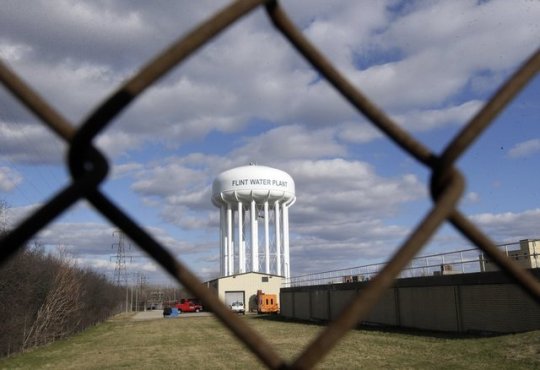
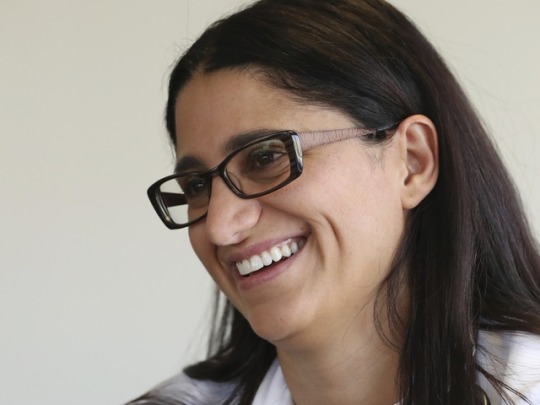
Pediatrician Who Exposed Flint Water Crisis Shares Her 'Story Of Resistance'
In August of 2015, Dr. Mona Hanna-Attisha was having a glass of wine in her kitchen with two friends, when one friend, a water expert, asked if she was aware of what was happening to the water in Flint, Mich.
Hanna-Attisha, a pediatrician in Flint, knew that the city had changed its water source the previous year. Instead of channeling water from the Great Lakes, residents were now drinking water from the nearby Flint River. She had been aware of some problems with bacteria after the switch, but she thought everything had been cleared up.
Her friend warned otherwise: "She said, 'Mona, the water isn't being treated properly. It's missing something called corrosion control. ... Without that corrosion control, there is going to be lead,' " Hanna-Attisha remembers.
The possibility that the city's drinking water had been tainted by lead raised alarms in Hanna-Attisha; exposure to lead can result in long-term cognitive and behavioral problems, especially in children.
As Hanna-Attisha began reviewing her patients' medical record, she noticed that the percentage of children with elevated lead levels had increased after the water switch. But when she shared her data at a hospital press conference, government officials tried to discredit her.
"The state said that I was an unfortunate researcher, that I was causing near hysteria, that I was splicing and dicing numbers," Hanna-Attisha says. "It's very difficult when you are presenting science and facts and numbers to have the state say that you are wrong."
But Hanna-Attisha refused to give up. Instead, she spearheaded efforts to publicize and address the water crisis in Flint. She writes about her experiences in the book What the Eyes Don't See.
"This is a story of resistance, of activism, of citizen action, of waking up and opening your eyes and making a difference in our community," she says. "I wrote this book to share the terrible lessons that happened in Flint, but more importantly, I wrote this book to share the incredible work that we did, hand-in-hand with our community, to make our community care about our children."
Photos: Carlos Osorio/AP
#Flint#Water#Lead#Environment#Health#Mona Hanna-Attisha#Flint Water Crisis#toxin#children#poverty#science#interview
1K notes
·
View notes
Text
How a Pediatrician Became a Detective
By Mona Hanna-Attisha, NY Times, June 9, 2018
Dr. Hanna-Attisha exposed the lead poisoning of children in Flint, Mich.
FLINT, Mich.--Lead. It was real.
I could see it in the blood of kids who visited my medical clinic here. It was the end of the summer of 2015, and children were being poisoned.
Ever since the city’s water source had been switched from Detroit’s municipal system to the Flint River 17 months before, residents had been complaining, holding meetings and organizing protests. Nothing was done about it. A memo from the Environmental Protection Agency, reporting astronomical lead levels in the water, was leaked by a courageous insider. Still nothing was done. A national expert on the science of tap water found shocking levels of lead. Still nothing.
Lead is a neurotoxin that can cause irreversible damage to the brain. There is no safe level. And yet kids and pregnant women were drinking the water. Babies were being fed formula that was mixed with the water. Mac and cheese was being made with the water.
And the people in charge were covering up, stalling--or they truly didn’t care. Was it laziness or, worse, an indifference to poor black and brown people?
Michigan’s governor, Rick Snyder, had made sure that state agencies were run like businesses. Officials seemed to be busy serving corporate donors and rubber-stamping the projects and plans that benefited them. The ethos of austerity prized dollars and cents over children and their health.
To make matters worse, ever since 2011, Flint had been run by an emergency manager appointed by the governor. The city was $15 million in debt, and the manager’s mandate was to cut costs, strip waste and balance the budget. That’s why the water supply was switched in the first place--to save a little bit of money.
Elin, an old friend of mine from high school who happened to have grown up into a drinking-water expert, was the one who pushed me to do my own study on the blood lead levels of children in my clinic. She had worked at the E.P.A. and knew everything about the risks of lead in tap water.
When I got my patients’ blood lead numbers, I was nervous about emailing them to her; I asked her to meet me instead. She lived near the field where my daughter had soccer practice that night, so I printed out the results and stuck them in my bag.
Elin texted me: “What field are you on?”
Me: “3.”
As the kids were scrambling on the grass and the other moms were talking about piano lessons and homework struggles, Elin read my findings.
Most of my professional life as a pediatrician and medical educator had been pretty predictable. Clinics, meetings, presentations, red tape, training sessions and lots of talking with faculty members and residents and patients. But I’d always seen my work through the lens of social justice. To put it simply, health is justice, especially for the youngest among us.
Now I was coming to see that my work couldn’t stop with treating patients and training other pediatricians. I was becoming something new--an activist, and a detective.
Elin is a reserved person, not a screamer or crier. But when she saw the study results showing that blood lead levels had increased since the water supply changed, she gripped my arm.
“Flint kids are being poisoned.”
A wayward soccer ball sailed toward us and we silently dodged it.
“The whole thing is so hard to believe,” I added, shaking my head. “What is wrong with the state? Isn’t safe drinking water their job?”
I kept thinking about all the worried parents I had seen over the past year. They were always asking about the water and whether it was safe. There had been so many news reports and rumors. My naïve trust in the government--local, state and national--had made a liar out of me. For months we told our patients the Flint tap water was fine. We even recommended it as a healthier alternative to sodas and other sugary drinks.
Pediatricians are charged with keeping kids healthy. We take an oath to do that. Where had we been? Where had I been?
Now I thought I could make it up to my patients. I thought my study--cold, hard evidence of increased lead in the blood of Flint children--would change things. But I was naïve once again.
I wrote and called state health officials. I met with the mayor. I encountered more stonewalling and stalling--and every day the poison continued to flow.
So, along with a growing team of doctors and scientists, I held a news conference to release our findings and demand action. It was an unusual thing for a local pediatrician to do. But that’s what you do when nobody’s listening. You get louder.
The state--now under growing national pressure--finally acquiesced and within a month, the Flint water source was switched back to the Detroit system. It took a few months more for the state to acknowledge what it had done to its own people and apologize. By then, I had been thoroughly radicalized.
Today the trauma of the Flint water crisis continues and the public health emergency persists. Our pipes were damaged by the untreated Flint River water, and more than four years later, the people of Flint are still on filtered and bottled water while the corroded pipes are being replaced.
What happened in Flint could happen elsewhere, as the push for austerity and a disdain for science are combined with antidemocratic measures like voter disenfranchisement, gerrymandering and state-appointed emergency managers. One of the lessons of Flint is that science and public health won’t save us without a functioning democracy. Being awake is not enough. We have to be loud. Only when we mobilize and have a say in what happens to our communities will smarter decisions be made--for the environment, for public health and for all our children.
2 notes
·
View notes
Text
Flint Registry sends free reusable masks to residents
Flint Registry sends free reusable masks to residents
The Flint Registry will send two free reusable face masks to all families in the city of Flint.
As of Friday, April 16, approximately 60,000 masks will be shipped to Flint homes.
“I wish we could ship the vaccines, but I’m excited to help keep Flint families safe during this recent COVID surge by promoting the Flint registry as well,” said Dr. Mona Hanna-Attisha, associate professor of pediatrics…
View On WordPress
0 notes
Quote
Just as a child can learn to be resilient, so can a family, a neighborhood, a community, a city. And so can a country. A country can endure trauma and neglect and become a place where people are cared for, where democracy and equality and opportunity are once again encouraged and advanced.
Mona Hanna-Attisha
1 note
·
View note
Text
April
Books
Finished reading:
Audiobook – Wine and War by Don and Petie Kladstrup, 2001
Book – The Hunt for Red October by Tom Clancy, 1984
Book – Terry Pratchett: A Life with Footnotes by Rob Wilkins, 2022
Book – What the Eyes Don’t See by Mona Hanna-Attisha, 2018
Currently reading:
Audiobook – The Enchanted Castle by E. Nesbit, 1907
Book – Fairy and Folk Tales of the Irish Peasantry by W.B. Yeats, 1888
Book – Looking for Betty MacDonald by Paula Becker, 2016
Book – Tasting History by Max Miller, 2023
Media
Finished watching:
Animated series – Lower Decks starring Eugene Cordero, Tawny Newsome, Jack Quaid, and Noël Wells; 2020 – TBD
Comedy special – Alex Borstein: Corsets and Clown Suits starring Alex Borstein, 2023
Movie – Meet me in St. Louis starring Judy Garland, 1944
Currently watching:
TV series – The Marvelous Mrs. Maisel starring Rachel Brosnahan, 2017 – 2023
YouTube series – Binging with Babish starring Andrew Rea at Babish Culinary Universe, 2016 – TBD
YouTube series – Tasting History with Max Miller starring Max Miller at Tasting History, 2020 – TBD
Projects
Finished projects:
NA
Current projects:
Recipes – Food & Wine 40th Anniversary Special Edition ed. by Hunter Lewis et al., 2018
Recipes – Good Drinks by Julia Bainbridge, 2020
Recipes – Appetites by Anthony Bourdain, 2016
Recipes – The Smitten Kitchen Cookbook by Deb Perelman, 2012
Recipes – The Big Texas Cookbook by the editors of Texas Monthly, 2022
Wine tasting – Wine Folly by Madeline Puckette, 2015
Cross-stitch – Feminist Cross-Stitch by Stephanie Rohr, 2019
1 note
·
View note
Text
April 25, 2014: Switch to Flint River Water Supply; 1926: New York Harbor a Menace
April 25, 2014: Switch to Flint River Water Supply; 1926: New York Harbor a Menace
April 25, 2014: Switch to Flint River Water Supply, Flint, MI. An article published online memorialized the change earlier that day from treated water from Detroit, Michigan, to the raw water supply of the Flint River and the activation of the Flint Water Plant. The photo from that article reproduced above shows local and state officials toasting each other with water from the Flint plant. I am…
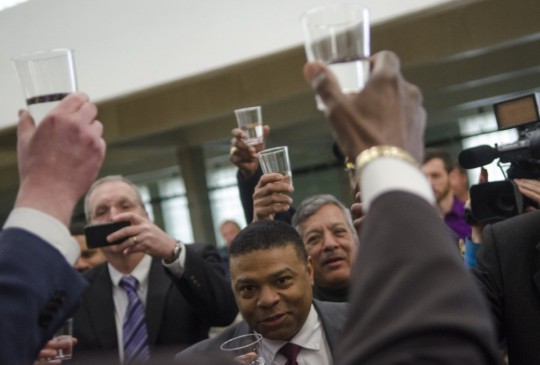
View On WordPress
#blood lead levels#Dr. Mona Hanna-Attisha#Flint#Flint River#Governor Rick Snyder#lead#Lead and Copper Rule Long-Term Revisions#lead poisoning#lead service lines#LeeAnne Walters#Marc Edwards#Michigan#Miguel Del Toral#New York Harbor#public health#sewage#USEPA#water
1 note
·
View note
Text
Flint Doctor Mona Hanna-Attisha on How She Fought Gov’t Denials to Expose Poisoning of City’s Kids
Dr Mona on Flint lead crisis
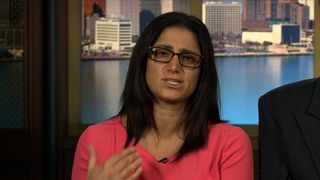
View On WordPress
0 notes